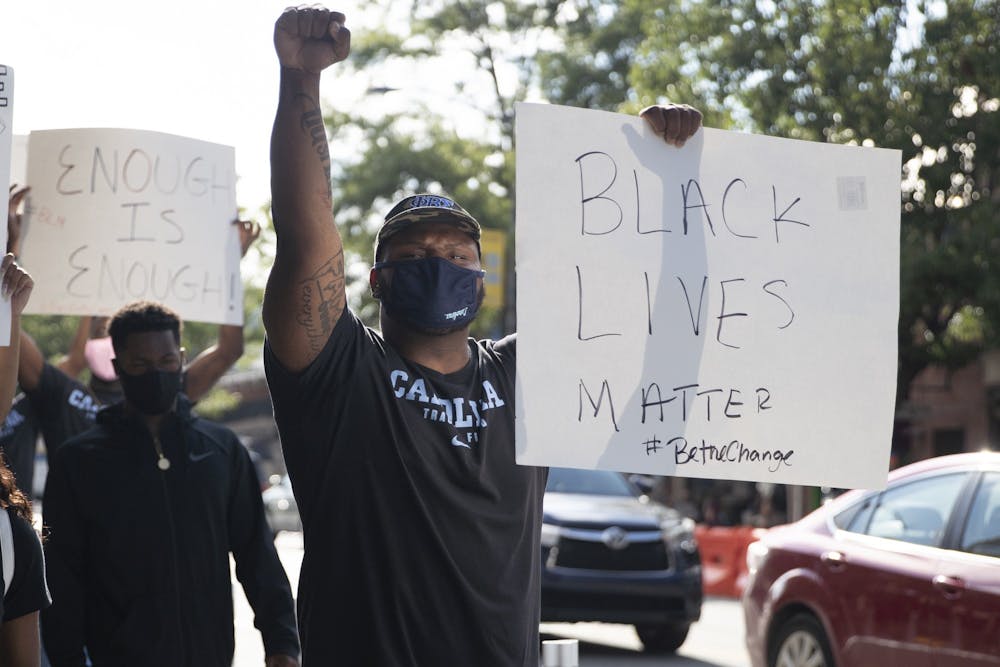Thirty-two years later, at the Mexico City Olympics, two American track and field stars raised fists on the podium to protest U.S. race relations and the Vietnam War. This display of civil disobedience occurred during the most politically tumultuous decade of the 20th century, marked by war abroad and the civil rights movement at home.
Sports even originated as ways to determine social status, with the victors becoming symbols for social, political and religious power. The very first Olympics? Mayan ball games? All examples of how sporting events and political influence go hand-in-hand.
You don’t need to look to ancient history to see how sports can have political implications. Evidence of this is in our own backyard.
In 2017, North Carolina saw boycotts from the NCAA and NBA after the passing of House Bill 2, known as the “bathroom bill.” This piece of legislation repealed anti-discrimination protections for transgender people and restricted public restroom access based on the sex listed on your birth certificate.
Last summer, UNC student athletes and coaches led marches for Black Lives Matter after the police killing of George Floyd.
It’s also time to shift how we think about sports as institutions, and how we view athletes as people.
There is no evidence that sports organizations have been, nor should be, apolitical. They exist in a political world, hold events in blue and red cities, are owned by people who have political opinions and cater to fans with their own political identities. There is no reason to think of sports as being immune to political influence.
Although it shouldn’t have to be said, athletes are people, too. They are no less capable of having their own opinions and political leanings, and they live lives off the field that we can’t see. Athletes don’t just exist for our entertainment.
This seems obvious, but our actions don’t always treat athletes as such.
Remember when football player Colin Kaepernick took a knee during the national anthem to protest police brutality and racial injustice? 49ers fans burned their jerseys and labeled Kaepernick as un-American — he was seen as a football player before he was seen as a Black man in America.
To his fans, Kaepernick was a symbol of American football, not social justice. They failed to see him as complex and able to represent both. The same is true for the MLB, America’s pastime. And for UNC’s athletes.
It’s time to recognize how inherently political sports are, as well as the deeply intertwined histories of both sports and politics. Ignoring this can cause us to dehumanize athletes and the very real issues they seek to bring awareness to.
To get the day's news and headlines in your inbox each morning, sign up for our email newsletters.
It’s time to stop shouting “just play the game” because you don’t agree with the message.
@caitlyn_yaede
opinion@dailytarheel.com
Caitlyn YaedeCaitlyn Yaede is the 2023-24 print managing editor of The Daily Tar Heel and oversees weekly print production. She previously served as the DTH's opinion editor and summer editor. Caitlyn is a public policy master's student at UNC.



